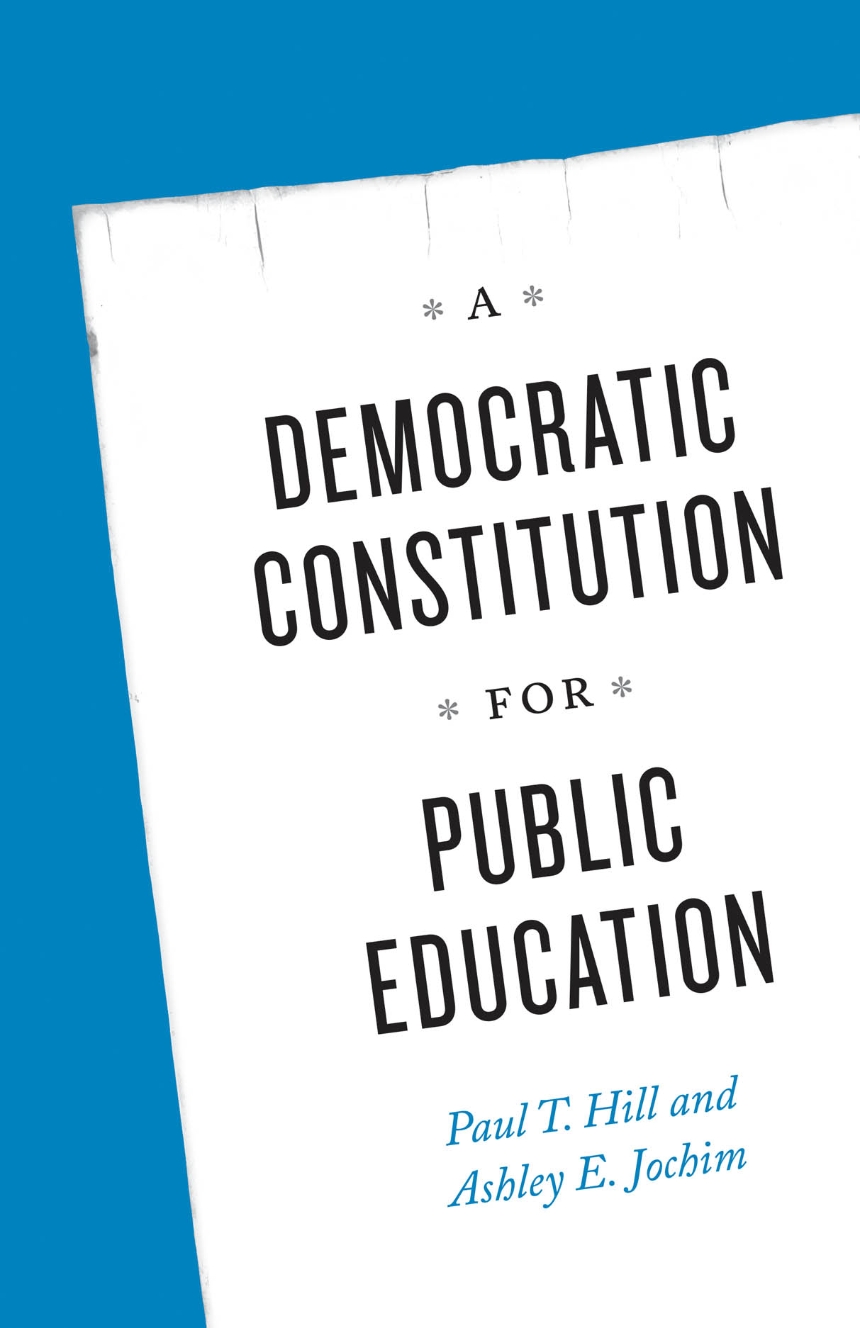A Democratic Constitution for Public Education
America’s education system faces a stark dilemma: it needs governmental oversight, rules and regulations, but it also needs to be adaptable enough to address student needs and the many different problems that can arise at any given school—something that large educational bureaucracies are notoriously bad at. Paul Hill and Ashley Jochim offer here a solution that is brilliant for its simplicity and distinctly American sensibility: our public education system needs a constitution. Adapting the tried-and-true framework of our forefathers to the specific governance of education, they show that the answer has been part of our political DNA all along.
Most reformers focus on who should control education, but Hill and Jochim show that who governs is less important than determining what powers they have. They propose a Civic Education Council—a democratic body subject to checks and balances that would define the boundaries of its purview as well as each school’s particular freedoms. They show how such a system would prevent regulations meant to satisfy special interests and shift the focus to the real task at hand: improving school performance. Laying out the implications of such a system for parents, students, teachers, unions, state and federal governments, and courts, they offer a vision of educational governance that stays true to—and draws on the strengths of—one of the greatest democratic tools we have ever created.
Most reformers focus on who should control education, but Hill and Jochim show that who governs is less important than determining what powers they have. They propose a Civic Education Council—a democratic body subject to checks and balances that would define the boundaries of its purview as well as each school’s particular freedoms. They show how such a system would prevent regulations meant to satisfy special interests and shift the focus to the real task at hand: improving school performance. Laying out the implications of such a system for parents, students, teachers, unions, state and federal governments, and courts, they offer a vision of educational governance that stays true to—and draws on the strengths of—one of the greatest democratic tools we have ever created.
152 pages | 7 tables | 5 1/2 x 8 1/2 | © 2014
Education: Education--Economics, Law, Politics, Education--General Studies, Pre-School, Elementary and Secondary Education
Political Science: American Government and Politics
Reviews
Table of Contents
Preface
Acknowledgments
1 Why Governance?
2 What Governance Must Accomplish and Avoid
3 Constitutional Governance
4 Checks and Balances: The Roles of Other Entities
5 School Rights and Obligations
6 Reimagining the Central Office
7 Allocation and Control of Public Funds
8 Enacting the System into Law and Managing the Politics of Implementation
9 What Governance Change Can and Cannot Accomplish
Notes
Index
Acknowledgments
1 Why Governance?
2 What Governance Must Accomplish and Avoid
3 Constitutional Governance
4 Checks and Balances: The Roles of Other Entities
5 School Rights and Obligations
6 Reimagining the Central Office
7 Allocation and Control of Public Funds
8 Enacting the System into Law and Managing the Politics of Implementation
9 What Governance Change Can and Cannot Accomplish
Notes
Index
